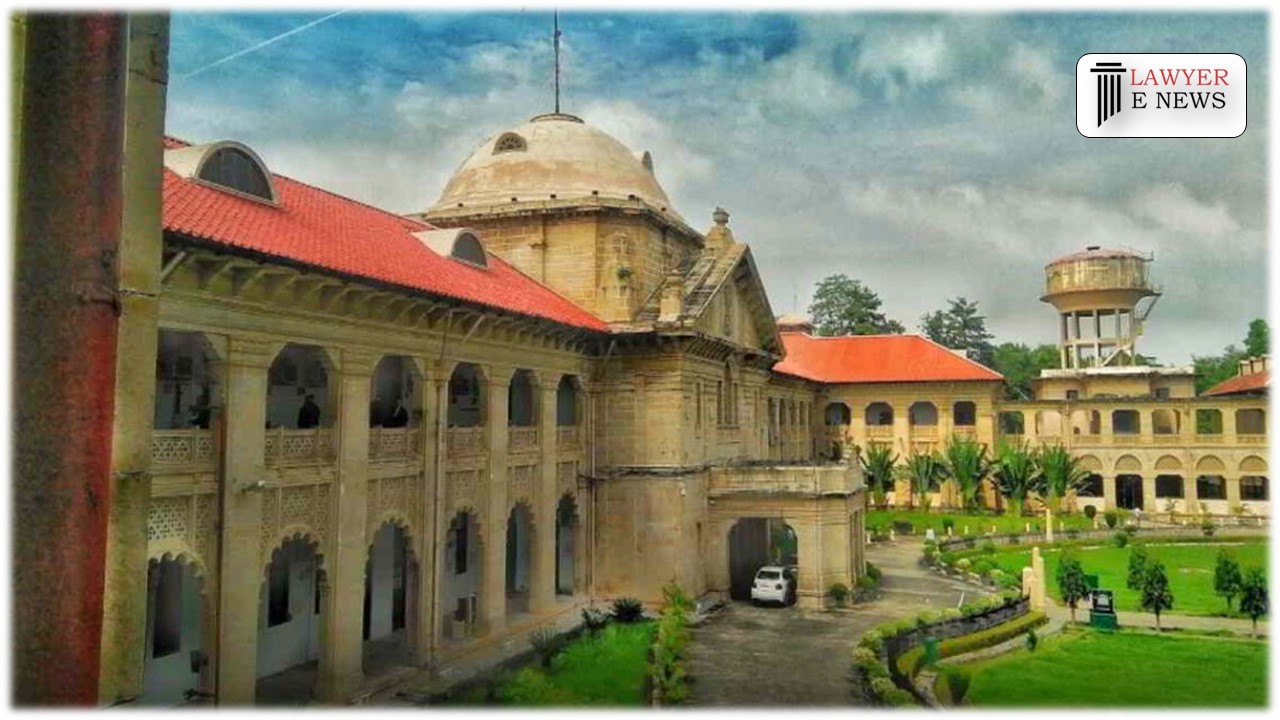-
by Admin
15 February 2026 5:35 AM



The Allahabad High Court has dismissed an appeal challenging the appointment of a receiver for the trust property, originally decided by the trial court. The judgment, delivered by Justice Vipin Chandra Dixit on 30th May 2024, upheld the trial court's determination that the trust, created by Jai Narain through a will deed dated 25th February 1925, is a public religious trust. The court found substantial evidence of mismanagement and misappropriation of trust funds by the appellant, Laxman Sahgal.
Background: The case originated from a dispute over the nature and management of a trust created by Jai Narain through a will deed dated 25th February 1925. The plaintiffs filed a suit under Section 92 of the Code of Civil Procedure (CPC) seeking the removal of the appellant and other trustees due to alleged mismanagement and misappropriation of trust funds. The trial court appointed a receiver to manage the trust property, a decision that was contested by the appellant on the grounds of urgency and the nature of the trust.
Nature of the Trust: The court observed that the trust created by Jai Narain is a public religious trust, intended to benefit the community. "The trust's public nature is evident from the will deed and the subsequent handling of the trust properties," noted Justice Dixit. The trial court's decision to classify the trust as public was based on thorough scrutiny of the historical documents and the actions of the trustees over the years.
Misappropriation of Trust Funds: The judgment detailed the mismanagement of trust funds by the appellant, who treated the trust as a private entity. The court noted, "The appellant has not maintained any proper accounts for the income and expenditure of the trust and has utilized the income for personal use." This misappropriation of funds justified the trial court's decision to appoint a receiver to safeguard the trust property.
Appointment of Receiver: Addressing the appellant's contention regarding the lack of urgency in appointing a receiver, the High Court found that the trial court had acted within its discretion. "The appointment of a receiver is a preventive measure to ensure that the trust property is managed properly and not further misused," Justice Dixit stated. The court emphasized that the primary objective was to protect the trust's assets and ensure their proper utilization for religious purposes.
Legal Reasoning: The court's legal reasoning was grounded in the principles of trust law and the provisions of the Code of Civil Procedure. The judgment referenced several precedents to support the decision, including T. Krishnaswamy Chetty v. C. Thangavelu Chetty and others, which outlines the conditions under which a receiver can be appointed. The court affirmed that any interested party could file for the appointment of a receiver to prevent further damage to the trust property.
Justice Dixit remarked, "The consistent failure of the appellant to maintain transparent records and his misuse of trust funds necessitated the intervention of the court through the appointment of a receiver."
Conclusion: The Allahabad High Court's ruling reinforces the importance of proper management of public religious trusts and underscores the judiciary's role in safeguarding such entities from misappropriation. By upholding the trial court's decision, the judgment ensures that the trust property will be managed in accordance with its intended religious and public purposes, setting a significant precedent for future trust management cases.
Date of Decision: 30th May 2024
Laxman Sahgal vs. Dinesh Bajpai and 6 Others
